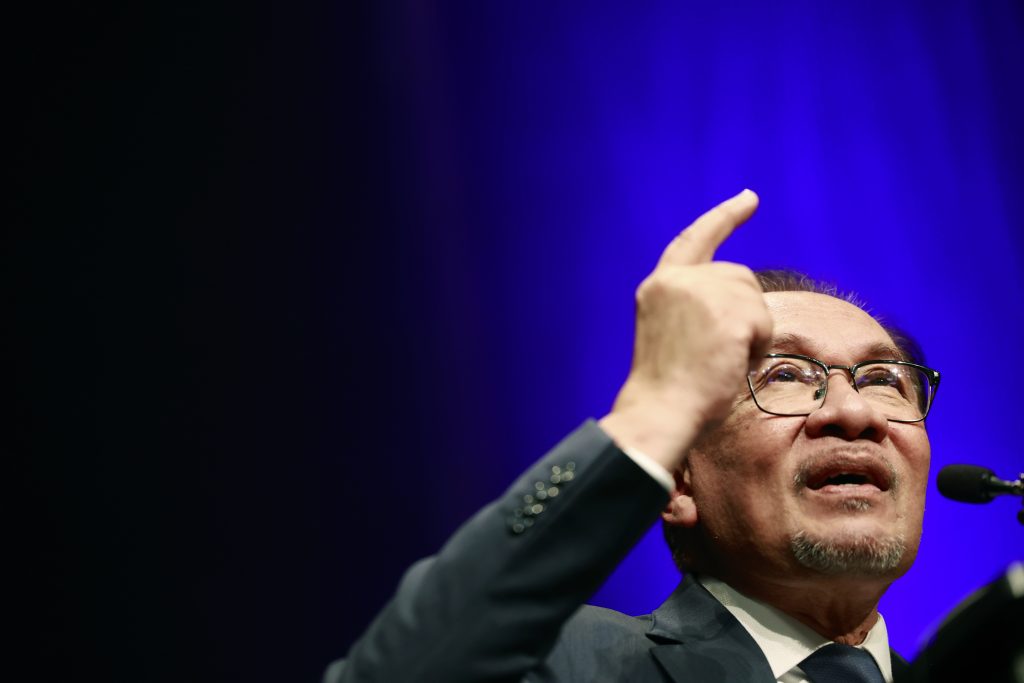
SOUTHEAST Asian leaders start two days of talks from Monday, seeking to deepen ties with China and Gulf nations, and mitigate the fallout from US President Donald Trump’s tariff hikes.
Trade and economic cooperation will likely dominate the agenda of the 10-nation Association of Southeast Asian Nations summit taking place in Kuala Lumpur, along with conflicts in Gaza and Myanmar.
While the first of the two Asean summits held annually is usually reserved for Southeast Asian leaders, China is sending its No 2 official, Premier Li Qiang. The leaders of the Gulf Cooperation Council nations, Bahrain, Kuwait, Oman, Qatar, Saudi Arabia and the United Arab Emirates will also be in attendance. By contrast, the US and other Western nations won’t be represented.
For Prime Minister Datuk Seri Anwar Ibrahim, the summit he’s hosting is a chance to foster trade ties at a time nations with large surpluses with the US are on the hunt for new investment opportunities abroad. China is warning partners to avoid any deal with the US that comes at Beijing’s expense, leaving Asean members to walk a delicate balance between the world’s two top economies.
“There is no substitute for the United States,” said Shahriman Lockman, an analyst at the Institute of Strategic and International Studies in Malaysia. “Yes, we talk about diversification and autonomy. But let’s not kid ourselves — there is no real alternative in sight.”
Trade between China and Asean nations reached US$982.3 billion last year, according to a report by state-run Xinhua News Agency. By comparison, US goods trade with the region totalled US$476.8 billion in 2024 — US$352.3 billion of which were American imports from the region, official data shows.
The summit comes weeks after Chinese President Xi Jinping visited Vietnam, Malaysia and Cambodia, during which he pitched for a unified “Asian family” — an apparent effort to counter US pressure on nations to limit trade ties with Beijing.
The Asean members are Brunei, Cambodia, Indonesia, Laos, Malaysia, Myanmar, Philippines, Singapore, Thailand and Vietnam.
New partners
Indonesia became a full member of the Russia and China-led BRICS group of developing nations earlier this year, with Malaysia, Vietnam and Thailand given partner nation status. Last week, Asean and China concluded talks to upgrade a free trade pact that includes chapters on digital and green economies and small and medium-sized enterprises, according to Chinese state media.
“I see this as a very good opportunity for us to show that Malaysia is a neutral country that wants to trade with any country that would like to trade with us,” Communications Minister Datuk Fahmi Fadzil told reporters of the summit.
Back in Washington, negotiators from several countries in the region are working on deals to avert some of the highest tariff hikes announced last month by Trump. Whether those efforts will pan out are unclear and the US rejected a Malaysia-led attempt to negotiate as a bloc, according to local reports.
Southeast Asia has also engaged in a spate of intra-regional visits to facilitate business closer to home, although that won’t likely come close to filling the gap left by the US if it doesn’t drop levies.
“These are encouraging, but it doesn’t mean that the trouble is over,” Singapore Deputy Prime Minister Gan Kim Yong said this month. He added that Asean is negotiating to upgrade an existing trade agreement that could facilitate lower levies even though more than 90% of goods traded in the region are already tariff-free.
Conflicts abroad
Beyond trade, regional leaders are expected to have sessions ahead of the summit to discuss the ongoing civil war in military-ruled Myanmar. Anwar has also used recent trips abroad to warn of a widening chasm in the global north-south economic divide and criticize Israel’s backers over its war with Hamas in Gaza.
He told reporters last week he would “probably touch on” the subject in a bid to push for a ceasefire. Whether any other substantive outcomes are reached, meanwhile, remains to be seen.
“Despite rhetoric from the Malaysian government as chair, there has been very little evidence of an Asean effort here,” said Gregory Poling, a director and senior fellow at the Center for Strategic and International Studies. “The stakes are actually pretty low.” –BLOOMBERG
The post US tariffs loom over Asean Summit as ties with China strengthen appeared first on The Malaysian Reserve.
